- "Ripper Street" is a gritty new period drama from the BBC
- Unlike "Downton Abbey," the series focuses on London's notorious East End
- Rather than guessing Jack the Ripper's identity, it shows the hysterical aftermath
(CNN) -- Unlike popular period drama "Downton Abbey," any chatting in "Ripper Street" takes place after a good brawl, in a brothel or over a dead body in the morgue -- not a cup of tea.
Teeth-jarring fights and the gruesome discovery of a "ripped tart" in the shadow-filled streets of London's East End are the first glimpses viewers have of BBC America's new crime drama, all set to the eerie soundtrack of a grating violin.
So if your favorite part of "Downton" is anticipating the war between former co-conspirators Thomas Barrow and Sarah O'Brien or Mr. Bates' violent side, this visceral series might be more your style.
Set in 1889, "Ripper Street" explores the gritty aftermath of the Jack the Ripper murders in Whitechapel. The H Division police force works tirelessly to keep chaos, and even more crime, from overtaking the streets.
Viewers will see the seedy side of London through three main H Division policemen, played by Matthew Macfadyen ("Pride and Prejudice," "Anna Karenina"), Jerome Flynn ("Game of Thrones") and Adam Rothenberg ("Alcatraz"). The eight-part series premieres at 9 p.m. ET Saturday on BBC America.
Series creator and writer Richard Warlow ("Mistresses") wanted to tap into how the Jack the Ripper murders still resonate today. His goal, he said, was to show the ways the horrific crimes affected life in London, not to answer the mystery of Jack's identity.
"I was more fascinated by the London folklore, and the idea of a very old city like ours having this extra life that these stories give it," Warlow said. "Real things happen and then they become embedded in the mythic strata of our city. Rather than offer any solutions, what we're trying to show is the place where that myth first embedded itself."
He had to draw on a balance of research and his own imagination, creating a universe that feels new even for fans of Johnny Depp's "From Hell" or BBC's modern-day series take, "Whitechapel."
In another twist, Warlow didn't want to lead the series with well-known Scotland Yard Chief Inspector Frederick Abberline, often the main character in other Ripper stories. Instead, he chose the real-life boss of H Division, Inspector Edmund Reid, played by Macfadyen.
"We wanted Reid to be a different kind of copper, somebody who was affected by the work he did, but that it didn't make him maudlin. Matthew gives you great presence, but at the same time, he gives you such soul, I think. He brings a solid sense of integrity about everything that he does."
Abberline is an integral part of the Ripper story, so he's included as a supporting character, portrayed "beautifully" by Clive Russell as a man that has been broken by something, Warlow said.
In the first episode, Reid talks about trying to move forward, and while they tried to do everything to find the Ripper, all that matters is that the murderer is gone. The Ripper is not going to own Reid's life anymore.
It is one of Warlow's favorite scenes.
"That felt powerful, not just for Reid, but it was a broader message for the whole show -- we're not going to get ourselves hung up on who Jack the Ripper is, but really concentrate on the streets that he influenced so much."
Immediately after the Ripper murders, sensationalism, fear and a desire for normalcy all swirled together in Whitechapel. The H Division Police Force's efforts to contain the hysteria is evident in the characters of Reid, his right hand man, Sgt. Bennet Drake (Flynn) and Capt. Homer Jackson (Rothenberg).
Jackson is an American in the distinctly British show, playing an ex-Pinkerton detective that's hiding in Whitechapel and living in a brothel, maintaining a contemptuous relationship at best with the madam, Long Susan. He has a taste for vice and a handy skill with early forensics as a former Army surgeon.
Jackson's character, like the others, is fraught with duality. Combined with Reid and Bennet, their conflict, friction and chemistry creates a compelling dynamic.
"He fits into the story by not fitting in," Rothenberg said. "In some ways, he can be a surrogate for the American audience looking at that time and place. At the same time, he represents their perception of America at the time -- he's the wild West."
Although he ambles around Whitechapel in his brown hat and green jacket with a six-shooter strapped to his waist, it was the mustache (he would never grow one for himself), and Warlow's larger-than-life concept of Jackson, that made things come alive for Rothenberg.
"Richard has a way of writing that puts you right there," he said. "I think it's a new voice that people haven't heard written for that time. Set design, costuming -- everything was conspiring to make you believe that's where you were."
The crew filmed the entirety of the show in Dublin, rather than London, and Warlow gives credit to production designer Mark Geraghty and costume designer Lorna Mugan for helping create the authentic edgy atmosphere of Whitechapel.
Today, there is little inspiration to be found in the office buildings that now cover the East End's historic streets, with the exception of a stray alleyway or two, but the finished product resembles what Warlow and his team imagined. The Victorian costuming is elegant, while the streets are cramped and dirty with notorious interludes and crime to be found in every alley.
"It was an insane time, in an insane area -- an intense pressure cooker," Rothenberg said of the era.
While London has evolved immensely from that infamous time, the cloak of its history is still tangible for visitors and residents alike, Warlow said. That's what he hopes to capture in "Ripper Street."
"They can get a sense of this city of ours, of London, and of all the kind of the darkness that lies behind its streets and gives the city its flavor -- the history of terrible things but rather wonderful people who have lived here throughout those times."
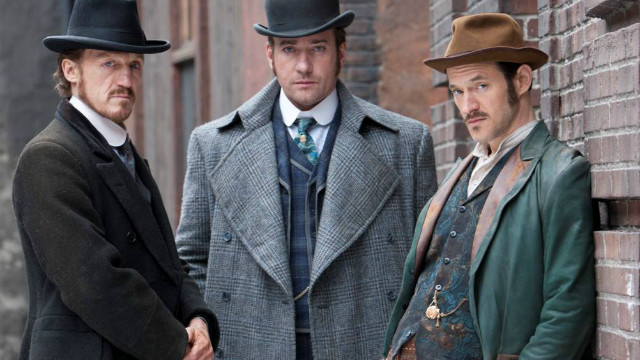 "Ripper Street" gives period drama a gritty edge by prowling the streets of London's East End in 1889, right after the Jack the Ripper murders have terrorized the city.
"Ripper Street" gives period drama a gritty edge by prowling the streets of London's East End in 1889, right after the Jack the Ripper murders have terrorized the city.
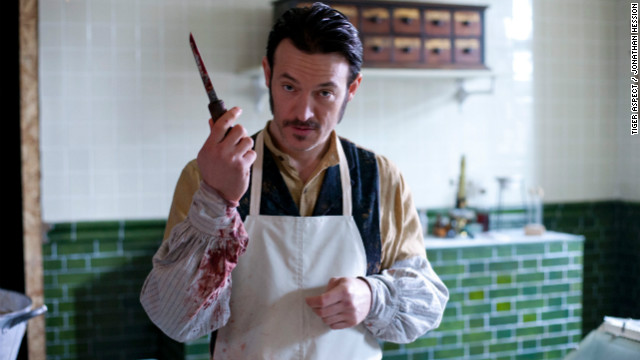 Capt. Homer Jackson, played by Adam Rothenberg, is an ex-Pinkerton detective with an interest in early forensics. "He's making it up as he goes along. Jackson is doing autopsies and handling evidence, drenched in blood and smoking cigarettes," Rothenberg said.
Capt. Homer Jackson, played by Adam Rothenberg, is an ex-Pinkerton detective with an interest in early forensics. "He's making it up as he goes along. Jackson is doing autopsies and handling evidence, drenched in blood and smoking cigarettes," Rothenberg said.
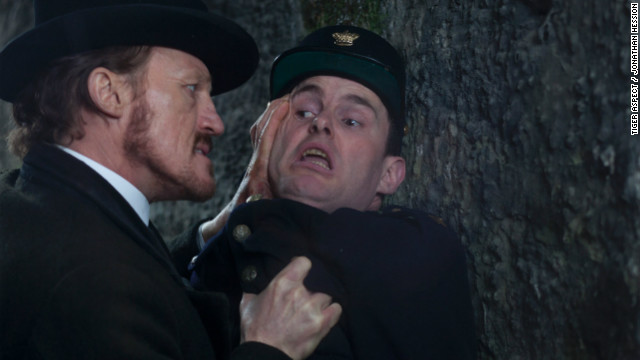 Sgt. Bennet Drake, played by Jerome Flynn, isn't above using violence to make people talk -- even his fellow policemen.
Sgt. Bennet Drake, played by Jerome Flynn, isn't above using violence to make people talk -- even his fellow policemen.
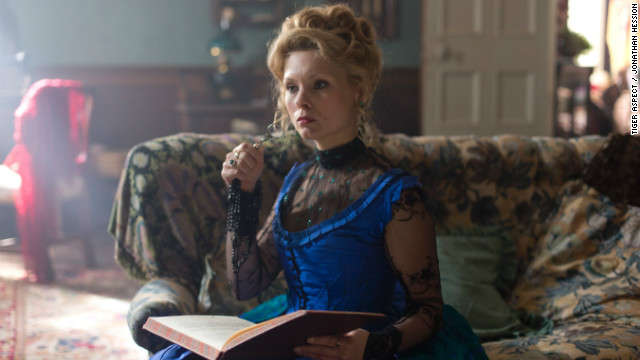 Long Susan Hart, played by MyAnna Buring, runs a popular brothel, but her past is mysteriously entangled with Capt. Jackson's.
Long Susan Hart, played by MyAnna Buring, runs a popular brothel, but her past is mysteriously entangled with Capt. Jackson's.
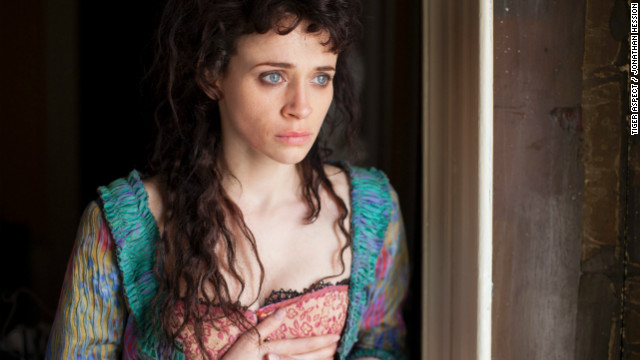 Rose Erskine, played by Charlene McKenna, is one of the more popular ladies at Long Susan's brothel.
Rose Erskine, played by Charlene McKenna, is one of the more popular ladies at Long Susan's brothel.
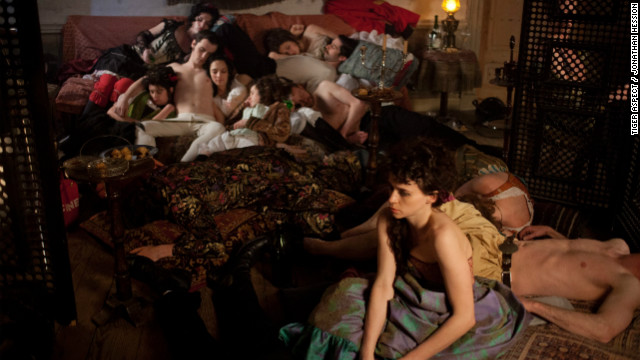 Vice is rampant in 1889 Whitechapel, and brothels are around every corner.
Vice is rampant in 1889 Whitechapel, and brothels are around every corner.